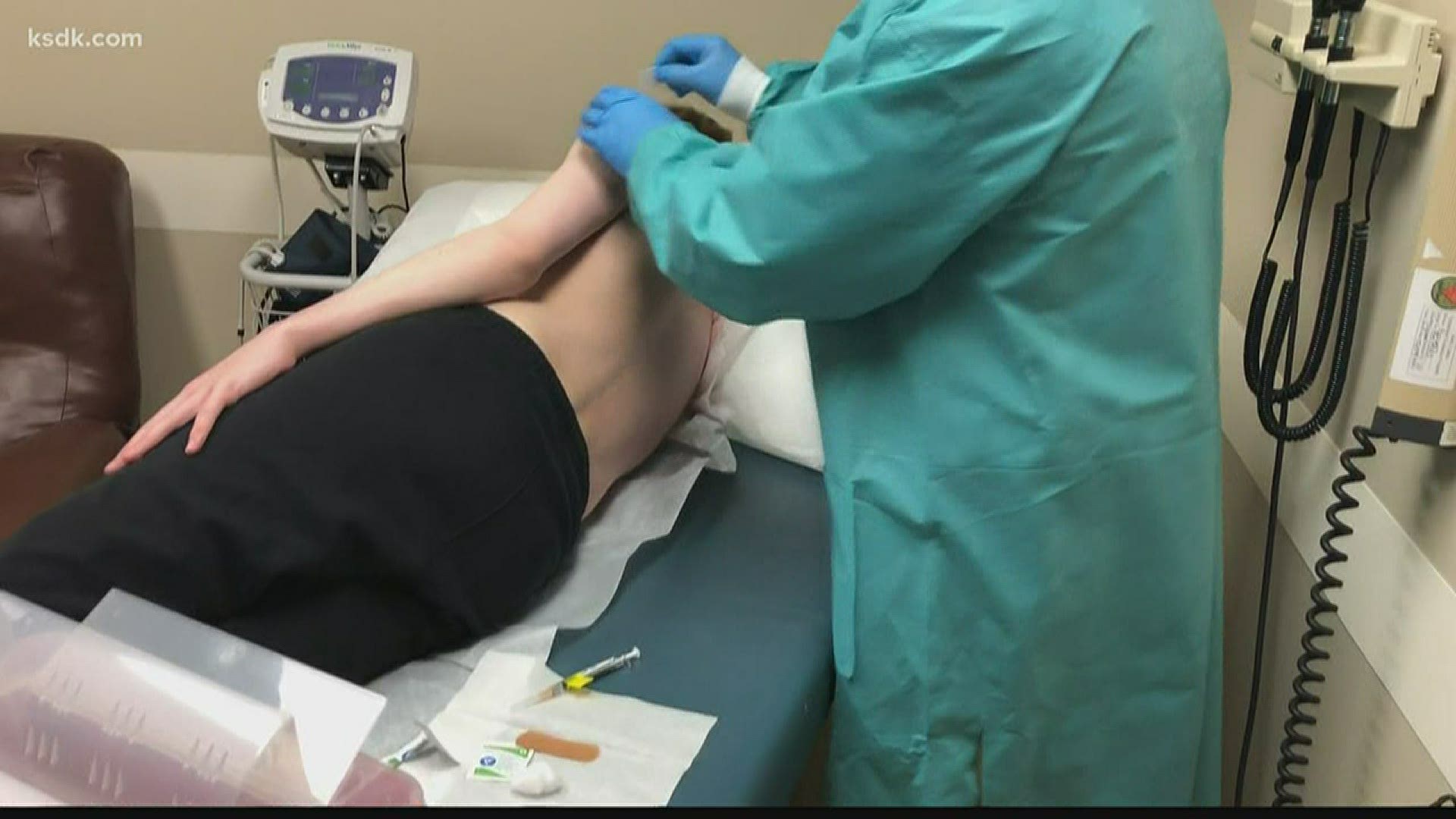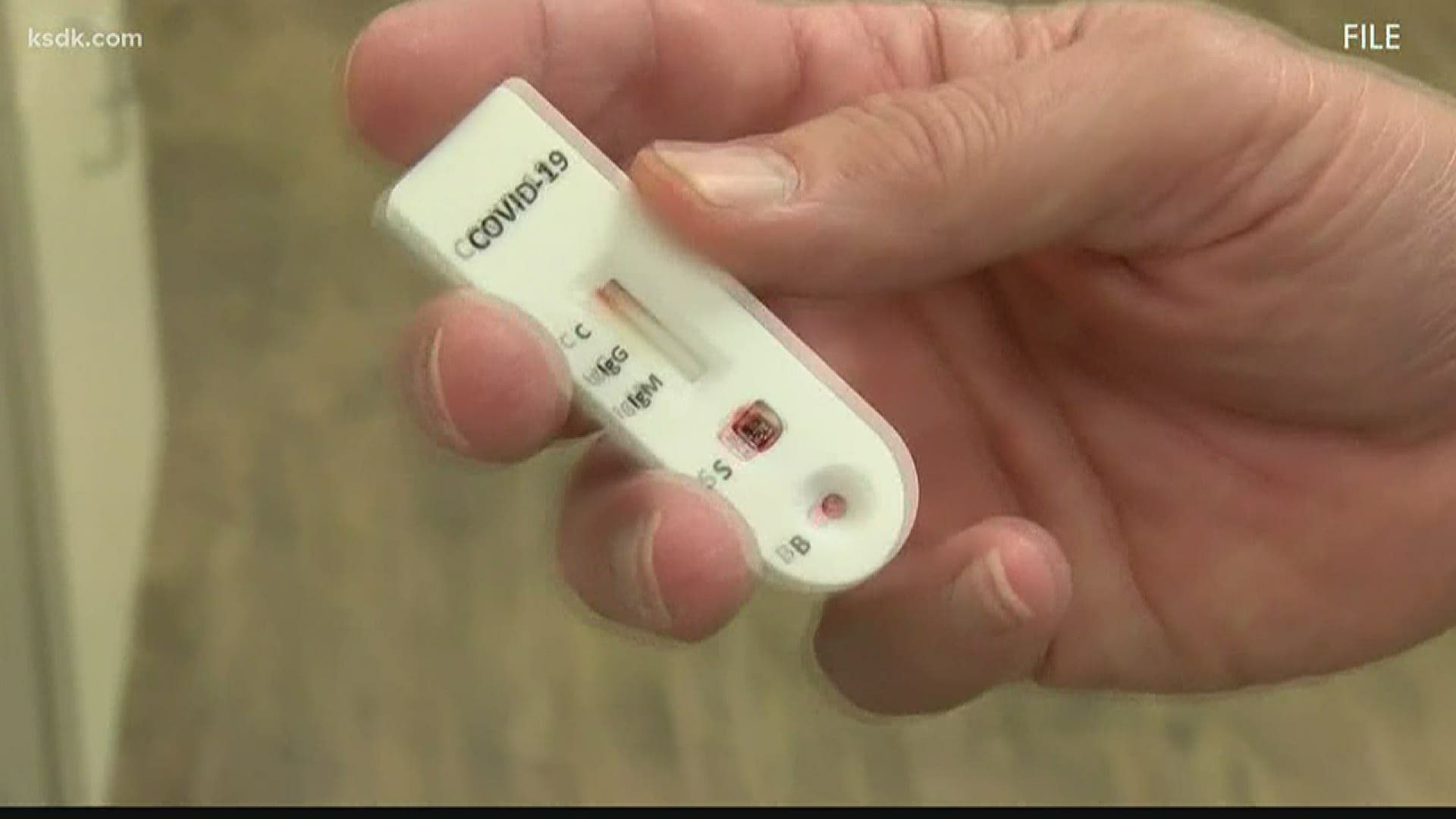ST. LOUIS — The first humans in the United States have received a potential COVID-19 vaccine.
Only two clinics in the country are conducting this vaccine trial. One of those clinics is The Center for Pharmaceutical Research in Kansas City, Missouri. The other clinic is at the University of Pennsylvania in Philadelphia.
Forty patients will receive the vaccine between the two clinics. The doctor leading the trial at the Kansas City clinic is Dr. John Ervin.
“I've done 800 clinical trials. I have done over 100 vaccine trials and this by far and away is what I consider the most important trial that we've ever done,” said Dr. Ervin.
He said this is not a live vaccine.
“It’s produced as a duplication of the viral cell wall,” Ervin said.
By administering the vaccine, he hopes to prime the immune system to recognize the invader.
Patients are observed in the clinic after injection to make sure they don’t have any unusual response. They are then followed with interval clinic visits and phone calls.
Ervin said all the patient participants are healthy individuals. They are paid $100 per visit for their participation as well as reimbursement for travel costs, according to Ervin. This is the same stipend that would be given for any trial. The fact that it is a COVID-19 trial did not increase the stipend, Ervin said.
So, how will Dr. Ervin know if it works?
“We won't know if it works until it's being used because we don't have a control group. We are not treating the disease. We are looking at the antibody levels,” he said.
“If we're testing a drug for cholesterol, well, you know it works because we see the cholesterol level come down. If we're addressing the vaccine, primarily what we're looking at is, we're not treating the disease, we're preventing the disease. So, you can't really look at efficacy other than the antibody level that rises and stays up, that we know is protective,” he added.
Ervin said normally to get a vaccine approved by the FDA would take eight years. Due to the urgency of the global pandemic, the FDA is accelerating the process.
Ervin and The Center for Pharmaceutical Research hopes to have a vaccine approved by the FDA in one year.


